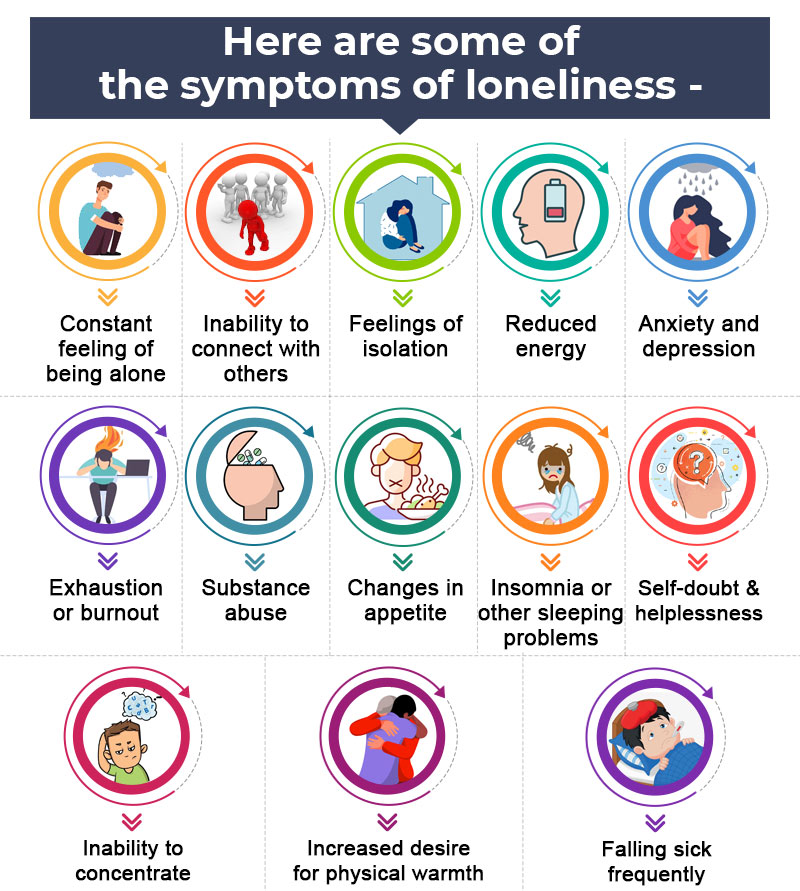Mental health concerns, though nuanced, touch many lives. Due to this growing awareness of mental health issues, you might have some clues or a rough idea of the signs someone is struggling with mental health!
Research has shown that support from family and friends is an elemental weapon against mental health issues! Therefore, using the right words and expressions can provide the comfort and care your loved one requires at that moment!
Use this article as a comprehensive guide to understand everything about mental health issues. From causes and signs to how to help someone who is suffering from mental health issues!
Why Do I Struggle With Mental Health
Feeling down or stressed sometimes is normal, but when they last and affect your everyday life, it can suggest that you maybe going through mental health problems.
But remember you are not alone in this! Life is a rollercoaster and every one of us have our ups and downs.
Therefore if you are looking for an answer to, ‘Why do I struggle with mental health’, there is no single cause of mental health issues. It looks like a combination of many things for instance some factors that might cause one to feel depressed, anxious, or have issues with their personality.
But having them does not guarantee a mental health problems rather it makes it more apparent.
Most mental health issues are not fully know why they occur. Research shows that these problems are typically caused by a mix of biology (the way the body works), thoughts and feelings, and environmental events.
Read More: What Is Mental Illness? 10 Signs And Coping Strategies
1. Family Connections
In some cases, mental health issues appear to run in families.
Researchers have indentifiend links between mental health of parents and that of their children!
However, remember do not be hard on yourselves or your family, as mental health is a complex interplay of various factors, both genetic and environmental.
If you notice patterns or concerns within your family, consider seeking support from mental health professionals who can provide guidance and strategies for coping.
2. Understanding Brain Function
Certain mental health issues involve how the brain works, especially in areas linked to thinking, mood, and behavior. Imbalances in chemicals in the brain or brain injuries can contribute to mental health issues.
3. Childhood Experiences

Bad experiences during childhood, such as serious injuries, significant losses, or a lack of proper care, can increase the likelihood of mental health struggles later in life.
Read More: What Is Childhood Trauma? 4 Signs of Lingering Childhood Hurt
4. Life Stressors
Major life stressors like losing a job, family problems, or substance use can trigger or worsen some mental health problems. However, it’s crucial to note that not everyone facing tough times ends up with a mental health issues.
While the answer to, “Why do I struggle with mental health” can be complex and varied, recognizing the signs someone is struggling with mental health and fostering open conversations are crucial.
Most importantly, you have to remember that you are not the only one going through these issues. And there are effective ways you can improve your situation!
Just don’t give up or feel alone! People are there for you!
Read More: Stress Is Contagious: 4 Ways Stress Can Spread Like The Plague
Signs Someone Is Struggling With Mental Health
The first step towards helping ourselves and others is recognizing signs of mental health issues.
Some of these signs may be normal in daily life, not necessarily related to a big problem. However, we have to keep our eyes open to help our loved ones!
1. Anxiety
It could be a sign of mental disorder if constant worry is interfering with one’s daily activities. The physical symptoms that usually accompany anxiety are heart palpitations, shortness of breath, and restlessness.
Take notice when your friend or loved one is being nervous or being restless. Your attention to these issues is crital for their comfort!
2. Depression
Bouts of depression manifest when somebody is unhappy, irritable, unenthusiastic, or demotivated for a long time. Emotional outbursts and losing interest in things that were previously enjoyable are common symptoms.
4. Sleep Problems
Changes in sleep patterns like insomnia or excessive sleeping might indicate a mental health problem.
Read More: 8 Surprising Health Benefits Of Sleeping On Your Left Side
5. Weight or Appetite Changes
Dramatic shifts in eating behavior, whether overeating or loss of appetite, may indicate that something is wrong.
6. Withdrawal from Social Life
An abrupt withdrawal from social activities especially contrary to the person’s normal behavior may signal a mental health disorder.

If you are a friend you should be able to notice that this person who was the center of the party is no longer even present at the party! Social isolation is a major indicator of declining mental health!
So keep a check on your friends now and then!
Read More: The Psychological Impact Of Social Isolation And Loneliness
7. Substance Abuse
One way to tell if someone may be dealing with a mental health issues is by looking at their continued use of drugs or alcohol.
Differentiating between the two is essential as individuals with mental disorders tend to utilize drugs as a regular technique for blunting feelings.
Family members must recognize this is not just for fun but rather serves as a stress reliever to the individual.
Read More: 7 Main Risks And Causes Of Addiction You Need To Know
8. Feelings of Guilt or Worthlessness
Thoughts about failure, self-blame, and worthlessness that continue for long periods can mean a person has a mental disorder.
9. Decline in Performance
Mental conditions might manifest themselves through a visible decline in an individual’s abilities such as poor performance at school or work, personal dishevelment, and lack of concentration amongst others.
Researchers share a common opinion that your understanding and empathy can play a significant role in helping your loved one navigate the complexities of mental health challenges.
So, if you have recognized signs someone is struggling with mental health, how do you help them?
Let’s take a look!
How To Help Someone Who Is Struggling Mentally
Coming across a friend who is struggling with his or her mental health can be difficult. It may seem scary to say something wrong and worsen the situation.

However, it is important to realize that simply being there and starting a conversation could be the most helpful support you can give.
Below are some steps to help guide you through helping a friend in a mental health crisis and provide the care and comfort they are seeking:
1. Acknowledge Your Observation
Notice changes in your friend’s behavior or character in general especially during trying times such as bullying, family disputes, or breakups as they have already put you on the way.
2. Recognize Warning Signs
Know major red flags like isolation from people, dangerous actions, anger, self-hatred, and drastic shifts in habits or academic performance because they may show distress.
3. Simply Show Up
Tell your friends that they are not alone. Try extra hard to spend time with them and involve them in your activities. Something small like a nice text message or an unscheduled Facetime call can mean so much.
4. Initiate a Conversation
Get into the subject by asking your friend how he/she has been lately or acknowledging recent distressing events.

Choose a personal setting, be calm, and avoid accusations. Inform them of changes noticed and offer an ear.
5. Be A Good Listener
Concentrate more on listening rather than talking. In times of hardship, individuals mostly appreciate being listened to and understood rather than being given instant solutions. Provide simple forms of sympathy while remaining nonjudgmental.
Read More: Why Is Mental Health Awareness Important? 10 Tips To Promote
6. Be Sincere in Your Support
Honestly tell your friend how much you care about him/her. Be real about what you love in your relationship. Avoid empty compliments because that is part of what is needed for true support.
Remember, your friend is important to you but they may require more comprehensive assistance from a mental health professional. When coming into the situation with empathy, honesty, and a willingness to listen; you are significantly aiding your friend’s journey towards healing.
What To Say To Someone Struggling With Mental Health
When someone close to you opens up about their emotional states or difficulties, managing the conversation can be difficult, and finding what to say to someone struggling with mental health may appear challenging.

One of the best ways to understand how to help someone who is struggling mentally is through open communication with that person!
The following are a few statements that might help your loved one feel safe, secure and comfortable during such moments:
1. “Would you like to talk about it? I’m here for you.”
Even if you don’t quite get what your friend or loved one is going through, you can still offer constructive support.
Be there as they express themselves without judging them so that they know there is someone who can help them out; let them take the lead in suggesting subjects of concern that they feel free with. Experts focus that you should “follow and support rather than lead and advise.”
2. “How can I assist you?”
If your loved one has been struggling with depression or anxiety, then they have probably discovered what works for them. Just by offering assistance even with small chores like laundry and shopping this shows that you care and are willing to be there for them.
Read More: 10 Things You Should Never Say To Someone Who Is Depressed
3. “That sounds difficult. How are you coping?”
By doing this, we acknowledge their emotions making it both validating as well as comforting to the concerned individual.

It confirms to our friends that we are feeling their pain with them, appreciating how real their struggles are, and assisting them to maneuver through.
4.”Let’s find a quiet place or take a walk.”
If you recognize signs someone is struggling with mental health and are having heightened anxiety, grounding activities like going on a walk or finding a peaceful area may be helpful to reduce signs someone is struggling with mental health. These grounding activities could just involve listening to music alone or enjoying some soothing scents.
5.”I’m truly sorry you’re going through this. I’m here for you whenever you need me.”
They have valid feelings hence reassure them about this by promising your support.
6.”Are You Seeking My Perspective or Do You Want Me to Listen?”
Ask what kind of support they need and tell them you will not judge them. Inquire what kind of advice your friend is looking for; “Does it make sense to you?”
Read More: What Not To Say To Someone During A Panic Attack: 7 Tips
From Awareness to Action
When offering someone words of encouragement or support on their mental health journey, let us not forget that the power in our words is to make them do something. Knowing what to say is an important beginning, but the real difference comes when we act on those words.
The first step in helping a person who has opened up about his/her mental health is to listen and understand the signs of someone struggling with mental health. Nonetheless, understanding how to help someone who is struggling mentally goes beyond talking. It comprises being present, empathizing, and actively supporting the individual towards their well-being.
Mental health goes beyond talk; it’s a plea for empathy and affection. Let us therefore join hands together in transforming our expressions into a comforting embrace for people grappling with challenges with mental health.
Frequently Asked Questions (FAQs)
1. What are the signs someone is struggling with mental health?
Signs someone is struggling with mental health include anxiety, constant worry, physical symptoms, depression, sleep changes, weight shifts, social withdrawal, substance abuse, feelings of guilt, and declining performance.
2. What to say to someone struggling with mental health?
Offer a listening ear, express willingness to assist, acknowledge their difficulty, suggest a quiet place or walk, express sorrow, reassure ongoing support, and clarify their needs.
3. Why do I struggle with mental health?
Feeling down is normal, but persistent impact suggests a mental health issue. Factors include genetics, brain function, childhood experiences, and life stressors.
4. How to help someone who is struggling mentally?
Acknowledge changes, recognize warning signs, show up, initiate a conversation, be a good listener, offer sincere support, and encourage professional assistance when needed.










Leave a Reply